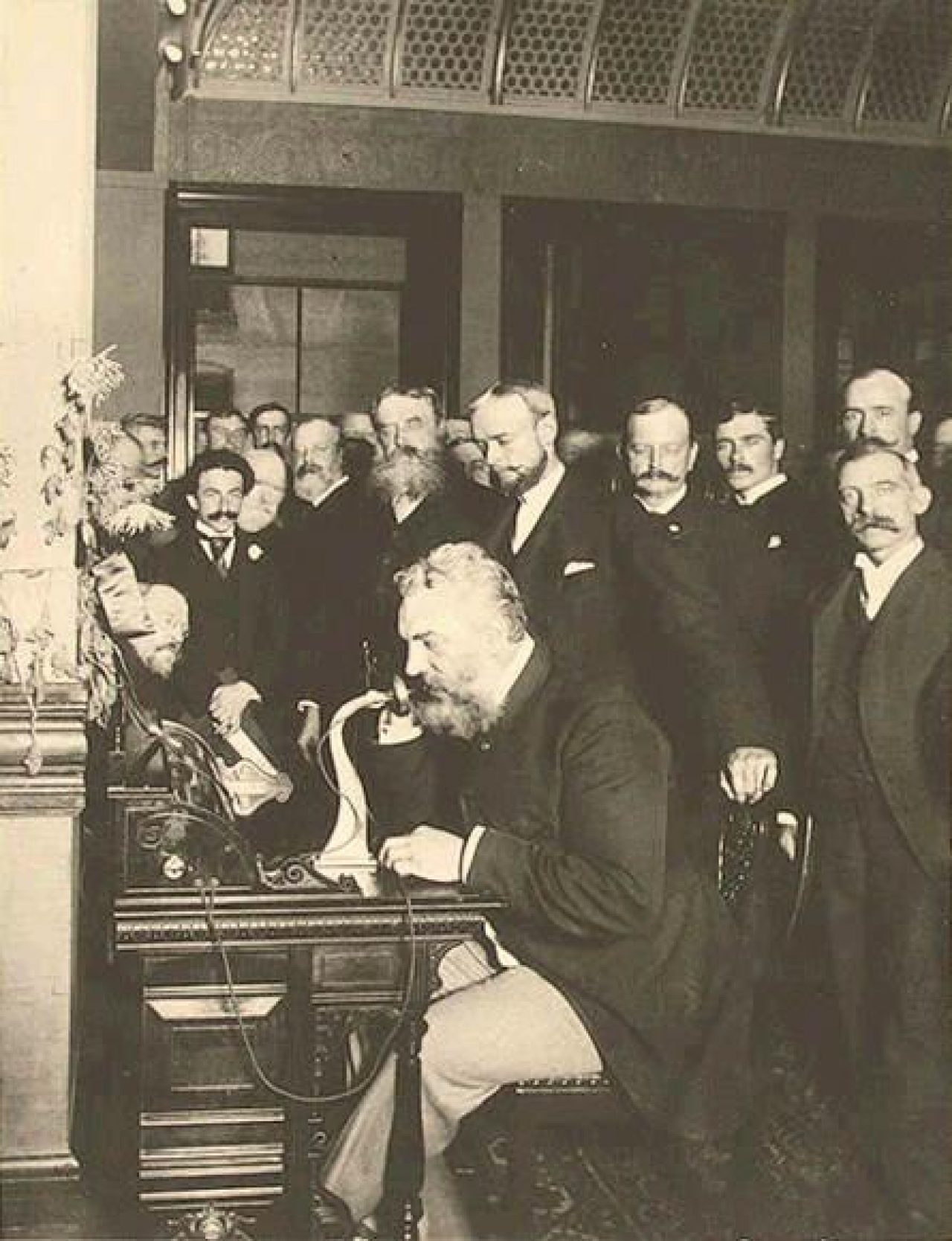Patenting the Telephone
138 years ago this week, inventor Alexander Graham Bell patented the telephone. To say that the telephone changed the world forever would be an understatement. Despite all of our other technological advances in the generations since, the basic premise of the telephone has stayed in place—and in popularity—since Bell’s introduction in 1876. Alexander Graham Bell
138 years ago this week, inventor Alexander Graham Bell patented the telephone. To say that the telephone changed the world forever would be an understatement. Despite all of our other technological advances in the generations since, the basic premise of the telephone has stayed in placeand in popularitysince Bell's introduction in 1876.
Alexander Graham Bell was born March 3, 1847 in Edinburgh, Scotland, the middle son of Alexander Melville Bell and Eliza Grace Symonds. As a child, Bell had an innate interest in the natural world, as well as music and art; his mother encouraged these pursuits, and Bell grew into a talented pianist. Bell was close to his mother, and was profoundly affected when she began to lose her hearingsymptoms began around his twelfth yearand the two developed special ways to communicate as her condition deteriorated.
Between his father's work in teaching elocutionthe skill of speaking with clarity and meaningand his own devoted interest in his mother's deafness, Bell had a great interest in speech and communication. As a teenager, he was unremarkable as a student at Edinburgh's Royal High School, but flourished in more individual studies and intellectual conversations with his father and grandfather. At the age of 16 he studied elocution and music, and would eventually go on to the University of Edinburgh.
As a young man, Bell was fascinated with sound, and conducted experiments with speech and pronunciation. One such experiment involved manipulating the lips and vocal cords of the family dog to make friends believe the dog was saying, How are you, grandma? Really the dog was pronouncing sounds that only relatively resembled the words, but it would be the beginning of a long and involved career with sound and elocution.
After the tragic death of one of Bell's brothers due to consumption, the family moved to North America in 1870. Bell's father would found the Boston School for Deaf-Mutestoday known as the Horace Mann School for the Deafwhere Bell would work training teachers. Bell was convinced that the hearing impaired could communicate orally, and tried to suppress the practice of sign language among his students.
At this time, in the early 1870s, the telegraph was exploding as the main form of long distance communication. Thomas Edison was working toward sending multiple telegraph messages on a single wire. Bell began to experiment with ideas touching on what he called the acoustic telegraph: transmitting the human voice over a telegraph wire. Bell hired electrical designer Thomas Watson as his assistant and, with the encouragement of the head of the Smithsonian institution, they began to work toward successfully creating the invention.
On March 7, 1876 Bell successfully won the patent on his design from the U.S. Patent Office. Three days after that, the invention worked and he clearly spoke to Watson, working in another room, the now famous words, Mr. Watson, come hereI want to see you. Later the same year, Bell improved on his design and was able to speak with Watson with several miles separating them.
Bell offered to sell his patent to Western Union for $100,000, but the company's president hesitated. Bell would withdraw his offer and go on to form his own company, The Bell Telephone Company, the following year. By 1886, only nine years later, 150,000 people had telephones, and the number would only increase. It wasn't long before nearly every American household had at least one telephone, and their use and popularity would spread worldwide.
Bell married Mabel Hubbard in 1877, having waited until the formation of his company proved him more financially stable. The couple had several children, including two daughters who would survive Bell, and two young sons who died in infancy. Still officially a subject of the British crown, Bell did not become a naturalized U.S. citizen until 1882. He and Mabel divided their time between Boston and a home they built in Nova Scotia.
Bell would spend much of his later life embroiled in patent disputes touching on the telephone. Throughout his career, he applied for and won 14 different patents for designs and improvements to the telephone and telegraph, and though he was challenged in court some 587 times5 times before the U.S. Supreme Courthis original patent always held.
Bell had many interests, and is credited with a number of other inventions, including the first metal detector as well as a device Bell called the photophone, which was basically a wireless telephone that transmitted sound over beams of light. The photophone never quite caught on in Bell's day, but his research laid the groundwork for fiber optics, which would come to prevalance much more recentlyin the 1980s.
Bell died August 2, 1922 at age 75, in Nova Scotia. After his funeral, all phones in the continental U.S. and Canada shared a brief moment of silence. The man who had wanted to help his mother stay in touch with the world had managed to change, forever, the way we all communicate.

 Member Connect
Member Connect